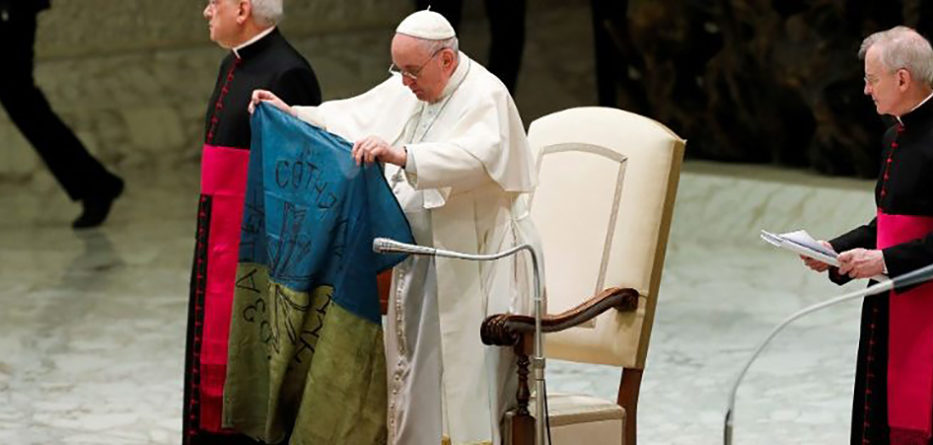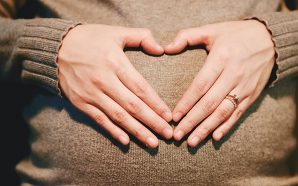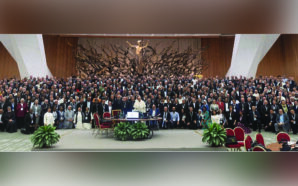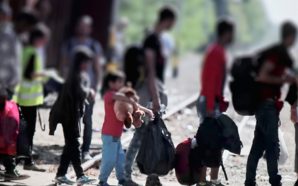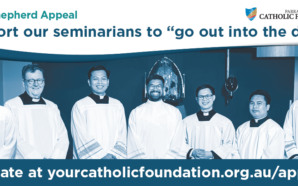Wars make strange bedfellows, and their first casualty is truth. War is always the hour of darkness, when disorder reigns, brute power sets the rules, and the innocent are crushed; when human appetites — lust, greed, rage, revenge — are unleashed and given free expression.
What we hear is happening now in Ukraine is nothing compared to what later we will learn, when the full impact of Vladimir Putin’s invasion is unveiled. If this war is like all previous wars in human history, the victims will not be only on one side and the aggressors on the other. Just think of the more than 15,000 mothers in Russia unable to mourn their dead sons—many of them teenaged conscripts—because Putin will not allow their bodies to be repatriated for fear of the impact on morale.
The price for war is always paid by the poor, and its profits are reaped by the wealthy who trade in arms.
I write these opening paragraphs to name the truth that, amidst the passions that wars arouse, we too often lose sight of the truth about the evil of war itself.
Now, imagine what Putin’s propaganda machine could do with those paragraphs if it wanted to: “Pope’s biographer says ‘victims on both sides’ in Ukraine,” perhaps. Or: “Remember mourning Russian mothers, says Pope’s biographer.” Or how about: “Pro-pope US website calls Ukraine ‘aggressor’”
Now comes the ethical question: if such headlines were now to appear in Russia, should Where Peter Is stop publishing me? Should I accept that “careless talk costs lives,” as the old WWII poster has it? Is it better to muzzle the truth rather than give succor to Putin’s henchmen?
While you consider that question, let me reframe it somewhat. What if those seeking to name those truths are not the relatively obscure and unimportant Austen Ivereigh and Where Peter Is, but instead, Pope Francis and the Vatican?
Uniquely among the world’s leaders of nations or faiths, Pope Francis has spoken virtually every day since February 24 about this horrendous war. He has named the truths about it and pleaded for an end to it; and every day, in ways that cannot always be made public, he has acted to try to bring it to an end. And for these things he has now been criticized, in a strange echo of conservative-traditionalist critiques of Francis, by four academics who claim that his words and actions are causing confusion and that he is opening himself to manipulation by Putin.
This is perhaps the central irony in an ill-judged opinion piece signed by four academics and published by the National Catholic Reporter in the US and Il Regno in Italy. Thomas Bremer, Regina Elsner, Massimo Faggioli, and Kristina Stoeckl praise Pope Francis for interrupting the bid by the Moscow Patriarchate in the mid-2010s to forge a holy alliance with Catholic conservatives and traditionalists against western liberal values. Yet they argue that by continuing to seek dialogue with Patriarch Kirill and by failing to “make clear where the Catholic Church stands on Ukraine,” Pope Francis “risks letting in through the backdoor those forces of reaction that he has tried to fend off inside his own church since 2013.”
Ironic, because the strategy of the traditionalist critics of Francis has been precisely to claim that Francis has failed to “dispel confusion” over divorce or gay marriage or abortion, and that in failing to “clarify” the Church’s position he has given succor to (or been manipulated by) the “enemies.” Writers for this site and other veterans of these polemics know that Francis’s positions are precisely those of the Church and the living tradition of the Catholic faith. We also know that, far from being unclear, Francis’s message has a clarity that scandalizes because it exposes just how far the ideology of the critics is from the Gospel and the authentic Catholic tradition. To see the same tactic deployed by these four academics is disheartening. Let us hope they are not scandalized for the same reason.
The other irony of the piece is that, while highlighting Putin’s distortions of Francis’s statements, they grossly distort those same statements. For example, they say that in his Corriere della Sera interview on May 3, the pope claimed that NATO expansion “compelled Putin to unleash the invasion of Ukraine.” Francis of course said no such thing. He said that NATO’s expansion provoked (the actual word he used was “facilitated”) Putin’s ire, a statement of fact that will be in every historical account of this war. A warmonger needs a moral justification and will latch onto a grievance to find it. NATO’s expansion—which nationalists in Russia see as an existential threat and the fruit of broken western promises—provides Putin’s. Francis simply said so.
More bizarrely, the four academics claim that the Vatican has a policy of “balancing out,” that it sees the invasion as “a geopolitical conflict of interests between Russia and US” and views Russia as “defending a legitimate national security interest.” Those are slurs for which they provide no evidence beyond a study by a body called the Russian Academy of Sciences that labels the Vatican’s position “soft” when compared to the speeches of European politicians. The academics quote the study’s claim that “the role of the Catholic Church is mostly interpreted as understanding of the Russian side.” Interpreted by whom, they do not say. If they are referring to Russia, then this is a very circular argument.
And what is meant by “soft”? It is true that, in the early weeks of the war, Francis was careful not to join in the increasingly bellicose condemnations by the west of Putin’s invasion. His statements were measured yet devastatingly accurate. In keeping with the Vatican’s diplomatic tradition, he avoided saying Putin or Russia by name, in order to leave open a chance—however slim—of a dialogue. But this does not mean Francis has avoided naming the truth of what is happening, consistently and repeatedly. For example, he described the invasion as “a perverse abuse of power and partisan interests, which condemns defenseless people to suffer all forms of brutal violence.”
It would be otiose to list all the ways the Pope has condemned the brutality, the “inhuman and sacrilegious cruelty” of the invasion, this “cruel and senseless war,” and his many pleas for it to end. “Soft” is not the adjective that springs to mind. For anyone interested, journalist Filipe d’Avillez has helpfully gathered the pope’s public statements about the war on his blog.
If the academics say Francis is not explicitly placing responsibility for this horror at the feet of Putin, they should read his address to politicians and diplomats in Malta. In it, the pope denounced how “some potentate, sadly caught up in anachronistic claims of nationalist interests, is provoking and fomenting conflicts.” Did anyone think he was not referring to Russia? When L’Osservatore Romano’s front page showed a photograph of a dead body in Bucha below the headline quoting Francis, “the spirit of Cain,” could anyone really claim not to know whom Francis believes is possessed by that spirit?
That these statements are being ignored or distorted by Russian state propaganda is not in doubt, but what is the pope supposed to do about it? Post-truth manipulation by vested ideological interests is hardly confined to Russia; just think of what some so-called “Catholic” media in the United States do to filter out and distort Francis’s teaching. Yet it has never stopped him proclaiming the truth he sees and teaches.
I think that what really drives the four academics is revealed only at the end of the article, where there are references to the ecumenism they believe Francis should be exercising. The short version is this: they want him to cut off relations with Kirill and throw in his lot with the Orthodox who have done the same, and they worry that the pope is not doing so out of some self-interested ecumenical gambit. They use a lot of words to say it: “A Vatican that continues to dialogue with this [Moscow] hierarchy, ignoring all other articulations of the Russian Orthodox Church in and outside the borders of the Russian Federation and ignoring the autocephalous Orthodox Church of Ukraine, risks enormous damage to the ecumenical project,” they begin. Then they say that while the Pope “puts hopes in ecumenical dialogue with the current leadership of the Russian Orthodox Church,” they believe he is wrong, because the “preconditions for this dialogue are missing: a commitment to peace, to the value of human life and to truthfulness.”
You’d think from the first quote above that the pope talks only to Kirill, and ignores the Orthodox leaders of Ukraine. This is certainly not true; but if it were, it would be because the patriarch, not they, has some power to bring this war to an end. You’d think from the second quote that Francis was engaged in endless scholastic discussions with Kirill—perhaps about the experiential vision of God as attained in theoria and theosis, or maybe the Filioque clause—while the shells were landing on Mariupol. Yet Francis’s 40-minute Zoom meeting with Kirill was all about the invasion. When the Patriarch attempted to justify it as a just war, Francis completely rejected any such notion. Further, Pope Francis warned Kirill that he was Putin’s altar-boy, a state cleric trading the Gospel for worldly interests.
Should Francis even have this “dialogue”? The four academics think not. They think he should break off all relations with Kirill and Russia, which is what some Ukrainian nationalists—and many in the autocephalous Orthodox Church of Ukraine—want him to do. This is also the view that the sociologists, theologians, and ecumenists behind this op-ed are articulating, if not representing.
They badly misunderstand the pope’s peacemaking role. As Fabrizio Mastrofini points out in a recent piece in Il Riformista, the pope is not promoting pacificism in the political sense of the word—renouncing the use of force. His message is peacemaking in the Gospel sense: looking to a different logic to resolve conflict, one that starts from mutual recognition. For Francis to cut off Kirill and Putin in a blast of rhetorical condemnation is war logic, and would only harden that logic. Even if it were not used by some in the west to claim a spiritual mandate for escalation, it would absolutely confirm the Russian nationalist claim that Francis is “NATO’s chaplain” and that Christian Russia stands alone, besieged by enemies.
More importantly, if Francis were to follow that course it would be to renege on the pope’s Gospel-mandated role in this conflict: to name the truth of what is happening and to stand clearly against the logic of war as any kind of solution. Ukraine’s right to self-defense may be clear, but so too is the devastating spiral of escalation.
For the brutal truth is that the longer this goes on, the more weapons will flood in, outrages will continue to pile upon outrages. And the harder it will become to escape what Francis calls “the diabolical and perverse logic of weapons.” St John Paul II famously described war as un’avventura senza ritorno, a venture from which there is no return, a downward spiral of violence. That is why, even while Ukraine is morally justified in fighting to protect its homeland, this cannot be, even for Ukraine, a just war. War as a means can never be just, because it sacrifices the poor and innocent, and so is always an injustice.
Francis names this truth, and defends the other logic—God’s logic, the path of mercy—even after most of us have given up on it. God’s logic recognizes the depth of human relationship. It demands our mutual recognition as fellow creatures. God’s logic is that we are are all still united by a shared dignity in spite of the horrors we have inflicted on each other. When, God willing, the guns fall silent, there will still be someone in this world with immense moral standing who can step in and remind people of this truth that war had blinded us to. In the meantime, this means being open to Kirill, however ghastly and corrupt he may be, because it is Kirill who might have a chance to stop this war. The pope knows and and has said this is extremely unlikely, for now. But the Gospel demands that he continue to try, not for the sake of some far-off ecumenical gain, but so that the raped women of Ukraine and the children fleeing bombs need scream no longer.
The pope’s stance needs no clarification. It could not be clearer. Amidst the roar of weapons and cries of grief, he stands among the victims, their blood on his cassock, begging for peace, and ready to talk to anyone and to do anything to bring it about.
Dr. Austen Ivereigh, a contributor to Where Peter Is, is Fellow in Contemporary Church History at Campion Hall, Oxford, the author of two major biographies of Pope Francis (The Great Reformer, 2014, and Wounded Shepherd, 2019) and his collaborator on the book Let Us Dream: the Path to a Better Future. Follow him on Twitter (@austeni) and his website (austeni.org).
With thanks to Where Peter Is and Austen Ivereigh, where this article originally appeared.




